Table of content
Ever heard of the ketogenic diet? The ketogenic diet is the long form of the keto diet. The main idea of this diet is to decrease carbohydrates (sugar) and increase good fats. Carbohydrates are the main source of energy consumed by your body. When there are fewer carbohydrates in the body, your body starts consuming fats as a source of energy, and this creates ketones. Normal levels of these ketones do not cause any harm, in fact, they help individuals who have increased insulin resistance.
Not only diabetes, these carbohydrates controlled and high healthy fat diets are being used to treat/manage various health conditions. According to PubMed, “the literature outlines that carbohydrate-restricted diets (LCD and KD) are increasingly used to manage various health conditions, including neurological disorders, obesity, dyslipidaemia, hypertension, diabetes, metabolic syndrome, and various cancers.”
IMPORTANT: Increased ketones can result in DKA (diabetic ketoacidosis) which is a life-threatening complication; under 0.6mmol/L is normal.
What is a Ketogenic Diet CGM?
A Continuous Glucose Monitor (CGM) is a device that provides real-time tracking of blood glucose levels throughout the day and night. CGMs are worn as small sensors on the skin and measure glucose levels every few minutes. This allows for continuous feedback and more accurate management of blood sugar fluctuations.
There is no specific ketogenic diet CGM, instead with a CGM, individuals on a ketogenic diet can track how their blood sugar responds to various foods, ensuring that they stay in ketosis and effectively manage their blood sugar. The data from a CGM can help determine whether the current macronutrient ratio is helping to maintain optimal blood sugar levels or if adjustments are needed.
CGMs provide a clearer picture than traditional blood glucose tests, helping users make more informed decisions about their diet and lifestyle. By using CGMs in combination with a ketogenic diet, individuals can assess how their body responds to different foods and improve their overall health management.
Did you know?
Libre 3 Plus sensor is not only a world’s smallest CGM sensor with 15 days life, it is AID (automatic insulin delivery) system compatible as well.
Important for people on Keto Diet:
As it seems you are about to start or have started a ketogenic diet, please limit your carbohydrates but do not remove them altogether from your diet, doing so can lead to a critical health condition called ketoacidosis. So don’t forget your favorite carbs, follow a keto diet which is the most suitable for you, and enjoy your cheat days as well.
In case you are a bit too conscious about your Keto diet, you may use FreeStyle Precision Neo Blood test strips to measure ketones in your blood. These strips are used with Freestyle Precision Neo Blood Glucose Monitoring System.
Following are the normal, slight high, and critical high levels of your ketone;
- Normal: under 0.6mmol/L
- Slightly high: 0.6 to 1.5mmol/L
- Critical high: 1.6 to 3mmol/L
In case of a slightly high reading, please test again in 2 hours. Getting a critically high reading means you’re at risk of DKA and require a healthcare specialist’s advice.
Types of Ketogenic Diet
The ketogenic diet (Keto) has gained popularity for its potential benefits in weight loss, blood sugar control, and improving metabolic health. The key principle of the ketogenic diet is to shift the body from using glucose for energy to using fat by entering a metabolic state called ketosis.
Below are some of the primary types of ketogenic diets, along with their specific macronutrient ratios and examples of common diet plans used within each.
Standard Ketogenic Diet (SKD)
The Standard Ketogenic Diet (SKD) is the most commonly followed version. It typically consists of:
- Fats: 70-75% of total daily calories
- Proteins: 20-25% of total daily calories
- Carbohydrates: 5-10% of total daily calories
SKD is most effective for those seeking weight loss, improved metabolic health, and stable blood sugar levels. Foods typically included are fatty cuts of meat, butter, cheese, eggs, and non-starchy vegetables.
Example of SKD meal plan:
- Breakfast: Scrambled eggs with spinach and avocado
- Lunch: Grilled chicken with olive oil and leafy greens
- Dinner: Salmon with a side of broccoli sautéed in butter
Targeted Ketogenic Diet (TKD)
The Targeted Ketogenic Diet is designed for those who need to perform high-intensity exercise while maintaining ketosis. TKD allows for a small amount of carbohydrates to be consumed around workouts to provide quick energy. Typically:
- Fats: 65-70% of total daily calories
- Proteins: 20-25% of total daily calories
- Carbohydrates: 10-15% of total daily calories (with higher carbs consumed around exercise)
Example of TKD meal plan:
- Pre-workout: Small serving of carbohydrates (e.g., a small banana or sweet potato)
- Post-workout: Protein shake with some added fat (e.g., coconut oil)
TKD is ideal for athletes and active individuals who want to stay in ketosis but still need energy for performance.
Cyclical Ketogenic Diet (CKD)
The Cyclical Ketogenic Diet involves alternating between periods of low-carb ketogenic phases and higher-carb refueling phases. A typical CKD cycle could look like this:
- 5 days on the standard ketogenic diet (low-carb, high-fat)
- 2 days of higher-carb eating to replenish glycogen stores.
This type of diet is beneficial for bodybuilders or athletes who require higher levels of carbohydrate intake for muscle recovery and intense exercise. The carb-loading phase helps prevent muscle breakdown while still offering the benefits of ketosis.
Example of CKD meal plan:
- Days 1–5: Strict keto (e.g., eggs, butter, fatty meats, low-carb veggies)
- Days 6–7: Higher-carb meals (e.g., whole grains, fruits, legumes)
High Protein Ketogenic Diet
The High Protein Ketogenic Diet is similar to the standard keto but includes a higher amount of protein. The macronutrient breakdown generally includes:
- Fats: 60-65% of total daily calories
- Proteins: 30-35% of total daily calories
- Carbohydrates: 5-10% of total daily calories
This type of keto diet is particularly useful for individuals who want to preserve lean muscle mass while still entering ketosis. It is often used by those who are trying to lose fat while maintaining muscle, as protein helps support muscle recovery and growth.
Example of high-protein keto meal plan:
- Breakfast: Omelette with bacon and cheese
- Lunch: Grilled turkey with avocado salad
- Dinner: Beef steak with sautéed vegetables in olive oil
Hyper-Ketosis Diet
The Hyper-Ketosis Diet is a more extreme version of the ketogenic diet where the goal is to achieve even deeper levels of ketosis, often using a higher fat intake and stricter carb limitations. It is typically used for therapeutic purposes, such as for managing epilepsy or more severe metabolic conditions.
- Fats: 80-90% of total daily calories
- Proteins: 5-10% of total daily calories
- Carbohydrates: 1-5% of total daily calories (extremely low)
A hyper-ketosis diet often requires careful monitoring and is usually implemented under the supervision of healthcare professionals. It may also involve the use of medium-chain triglyceride (MCT) oils to achieve higher ketone levels.
Example of Hyper-Ketosis meal plan:
Breakfast: MCT oil coffee (bulletproof coffee)
Lunch: Salmon with avocado and olive oil
Dinner: Ribeye steak with non-starchy vegetables and butter
Best Ketogenic Diet for Managing Blood Sugar
The ketogenic diet can be highly beneficial for managing blood sugar levels, particularly for individuals with Type 2 diabetes or prediabetes. The reduction in carbohydrate intake leads to lower blood glucose spikes and enhanced insulin sensitivity.
Among the different types of ketogenic diets, the Standard Ketogenic Diet (SKD) and the High Protein Ketogenic Diet are most often recommended for those looking to manage blood sugar levels. The lower carbohydrate intake reduces the frequency of insulin spikes, helping to stabilize blood sugar levels.
A study published in the Journal of Clinical Medicine has shown that ketogenic diets can improve blood sugar control and even reduce the need for diabetes medication in some individuals.
Most Recommended Keto Foods
To successfully follow a ketogenic diet, focusing on high-quality, nutrient-dense foods is essential. Some of the commonly recommended foods for a ketogenic diet include:
- Healthy Fats: Avocados, olive oil, coconut oil, grass-fed butter, and MCT oil
- Proteins: Grass-fed beef, fatty fish (salmon, sardines), eggs, poultry, and plant-based proteins like tofu
- Low-carb Vegetables: Leafy greens, cauliflower, zucchini, and other non-starchy vegetables
- Nuts and Seeds: Almonds, walnuts, chia seeds, and flaxseeds
- Dairy: Full-fat cheese, heavy cream, and unsweetened yogurt
These foods provide the right balance of nutrients to support ketosis, promote fat-burning, and help stabilize blood sugar levels.
Major Takeaways:
Ketogenic Diet CGM does not mean there is a specific CGM to be used with keto diet, instead you can choose any of the latest CGMs from the market and track your keto diet performance. Cutting off carbs is good, however, there are certain factors (explained above) due to which even a 0 carbs diet can be seriously dangerous, it can lead to ketoacidosis.
Manage your blood glucose levels while enjoying the benefits of ketosis. You may discuss this with your doctor, incorporate a suitable ketogenic diet and make your decisions more informed by using a suitable CGM sensor from CGM Monitors.
Disclaimer:
Please note that this blog is only for informational purposes. Always consult a doctor before you take any medical action.
Frequently Asked Questions
Do CGMs measure ketones?
A CGM cannot measure ketones in your blood. It only measures your glucose levels, helping you track your daily routine results.
What is the normal level of blood ketones?
Under 0.6mmol/L is the normal ketone level in your blood.
What are ketones?
Carbs are cut down into glucose (the main source of energy). When your body finds fewer carbohydrates, it starts cutting down fats instead. This produces acid in your blood known as Ketones.
What are the benefits of Keto diet?
Ketogenic diet has several benefits, including weight management, and enhanced mental clarity. This is also helping in the management of some other health conditions, such as diabetes, epilepsy and to prevent heart disease.

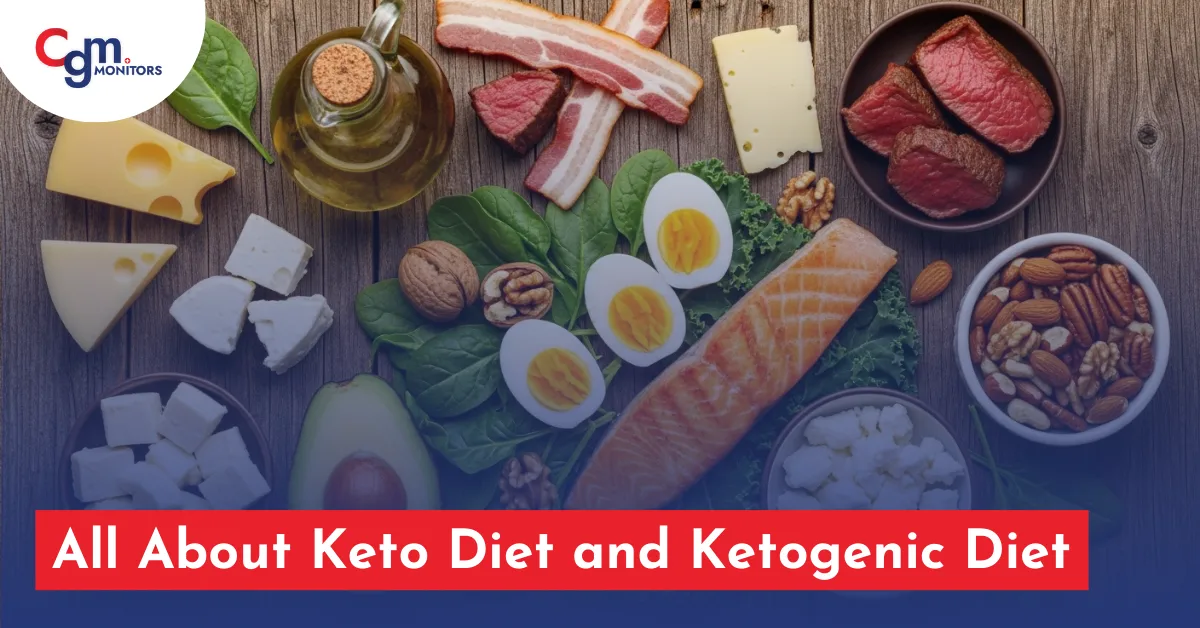
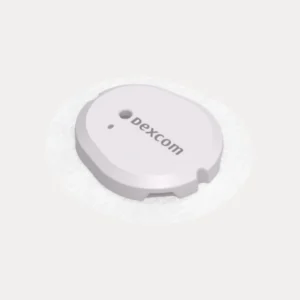
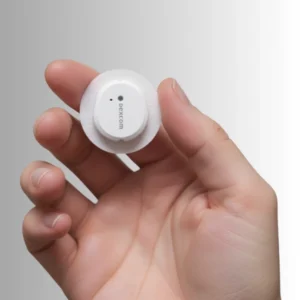



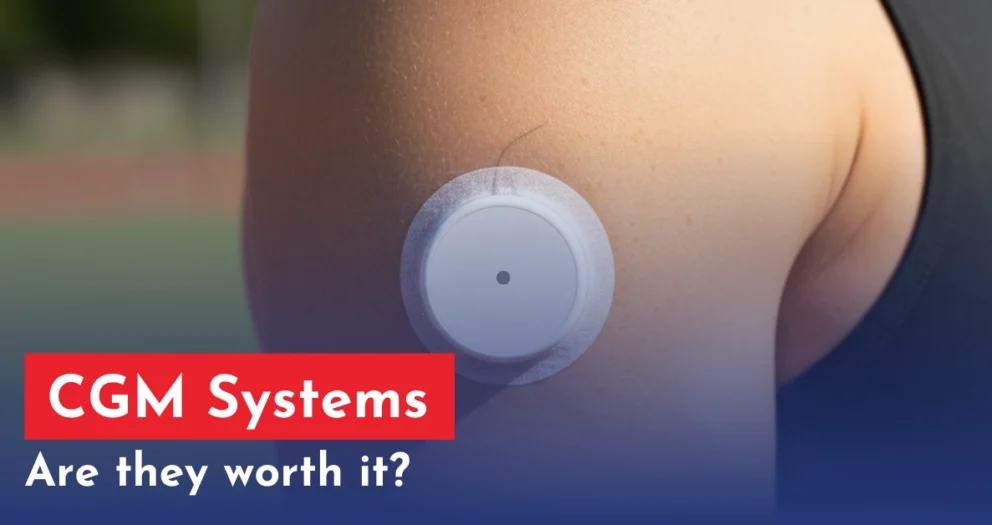
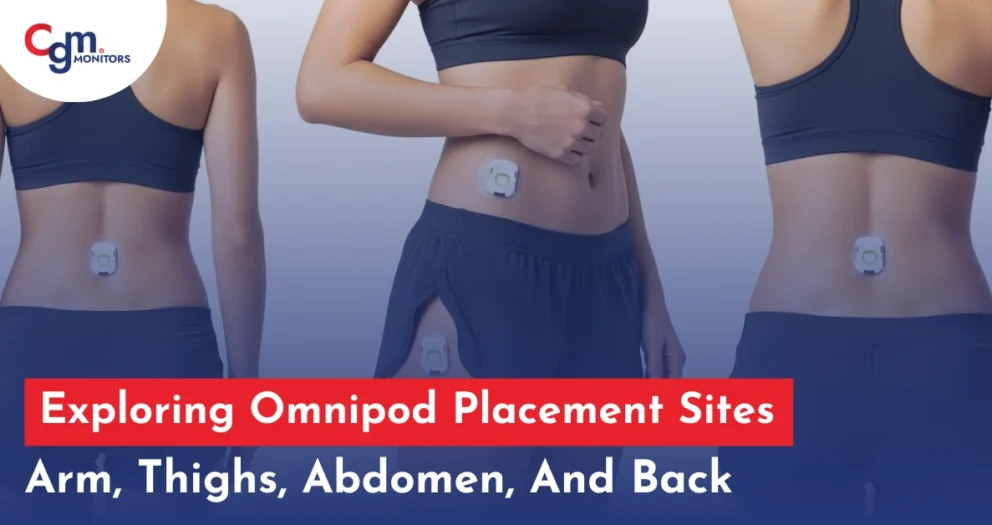

Write a comment
Your email address will not be published. All fields are required